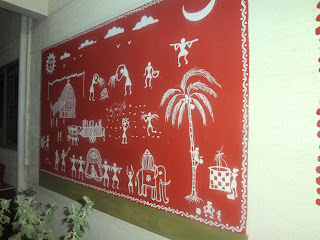On November 26, as we all witnessed brutal terror attack on
Mumbai’s Taj Mahal hotel, which suffered massive destruction by terrorists, not many of us know the historical importance of The Taj, which has carved a niche for itself. During pre- independence India, there was demarcation where in all the posh and high profile areas were exclusively reserved for whites and colored people were not allowed.
Remember Bhagat Singh and his friends being necked out of the play for entering the area which was reserved for whites, displaying
‘Dogs and Indians are not allowed’. Another famous (rather infamous) incident, where Gandhi being forced out of a first class compartment in South Africa.
People like Bhagat Singh and Gandhi decided to fight against the racial indiscrimination through violent and non-violent techniques respectively. But people like Jamshetji Tata decided to show the resilience in other way.
Jamshetji Tata decided to build a magnificent hotel in India after he was turned away from one that was specifically reserved for Whites, is an urban legend. He simply wished to build a hotel that the country could be proud of and a place where Indians and Europeans could freely mingle. That’s the reason why
Ratan Tata has direct control over the Taj Mahal Palace.
I recently came across an article in
Mumbai Mirror which revealed many unknown secrets of Taj Hotel, which would like to share...

Urban historian Sharda Dwivedi was commissioned to write a book titled Taj at Apollo Bunder on the Taj Mahal Hotel and Towers. The book was done 25 years ago but was put on the backburner and never published. Dwivedi dwells on some nuggets from the unpublished manuscript on the country's first luxury hotel built in 1903.

- From the 1920s onwards, Sarojini Naidu took a suite of rooms at the Taj and had them for at least three decades. As she was a poet and an active participant in politics, she used to entertain a lot here. She had meetings with Mohammed Ali Jinnah and Nehru in this suite. After World War II, many prominent Europeans converged upon this place to have dialogue with people who were involved in India's freedom movement about India's history and the new political climate.
- Politically, two-fifths of the country belonged to princely India. The royalty used to have an informal chamber for meetings, and that’s how one of the rooms got the name Prince’s Room. This is where the maharajahs would preside and their wives would let their hair down.
- The Taj introduced ballroom dancing and jazz music for the first time. Most of Mumbai's cultural and social activities centered around here. Mehli Mehta, Zubin Mehta’s father, would regularly play at the Melody Trio. The hotel was also the first to introduce authentic European cuisine.


- It is also commonly believed that W A Chambers designed the hotel. During my research, I found that the original plans were by architects Sitaram Bhaskar Vaidya and D N Mirza. Vaidya was the right hand man of W L Stevens, who designed the Victoria Terminus. He drew a lot from Stevens's design. But while Victoria terminus is Gothic, the architecture if the hotel is a fusion between Indian and European.Both buildings face west to trap the western breezes; both have magnificent domes and the staircases are cantilevered. It was only after Vaidya's death that it came upon Chambers to complete the project. He stuck to the design but tweaked the design of the dome. It was supposed to have been like an onion, but the architect gave it an Italian design.

- The Taj was a marker for all the ships entering the harbor.
- The Bella Vista suite, where the current general manager Karam Bir Kang lost three family members, used to be occupied by the Wadia family since the time of Neville Wadia, Nusli Wadia's father. The senior Wadia had a mansion called Bella Vista behind Kanchenjunga at Pedder Road, and a lot of artifacts were donated to this suite as Jamshetji and he were very good friends.

- The Sea lounge used to be the Palm Court originally. It was ultra modern for its time and was the first to have electric lights and fans. It was the hotel's lounge.

- The current Ballroom used to be the dining room. It had incredible metal pillars with filigree work until they were refurbished during the 1930s’ Art Deco movement.

- The Crystal Room got its name when JRD Tata’s sister Lady Petit donated all the crystal chandeliers from her bungalow, Petit Mansion, on Priyadarshini Park. Petit Mansion gave way to Petit Hall after it was demolished.
Amitha :-)











